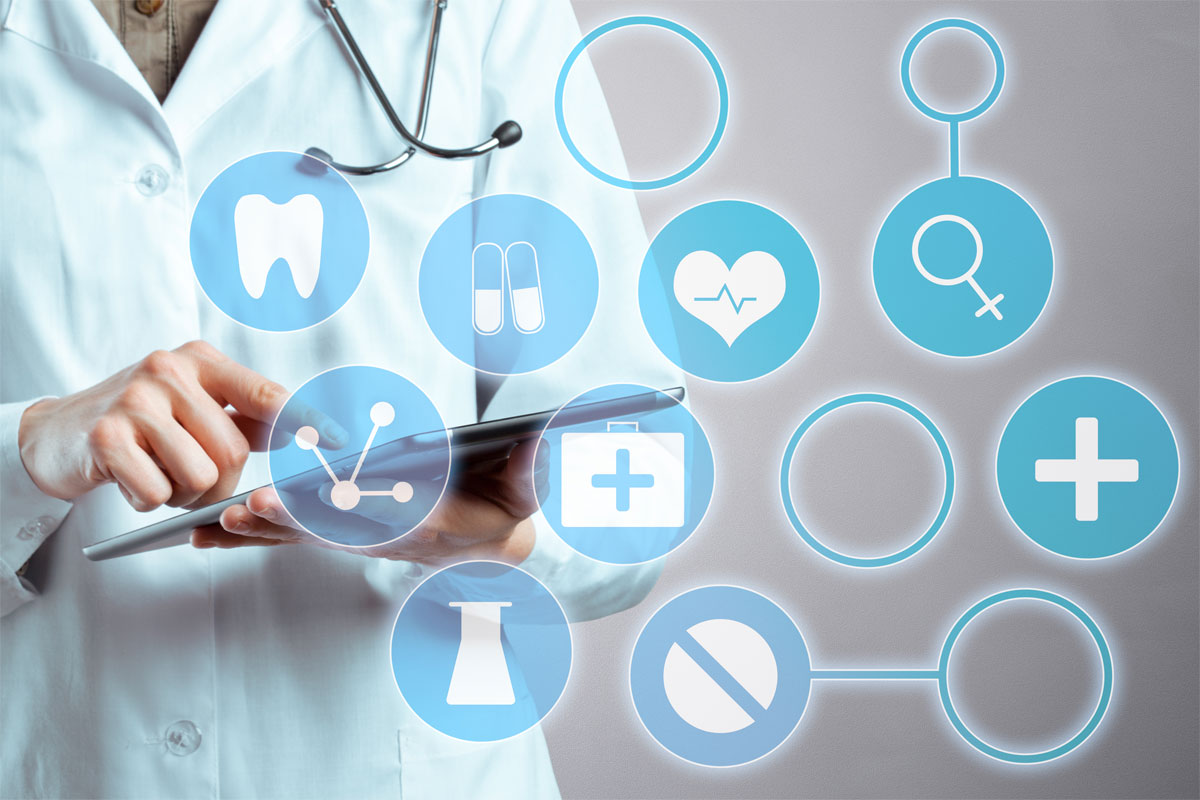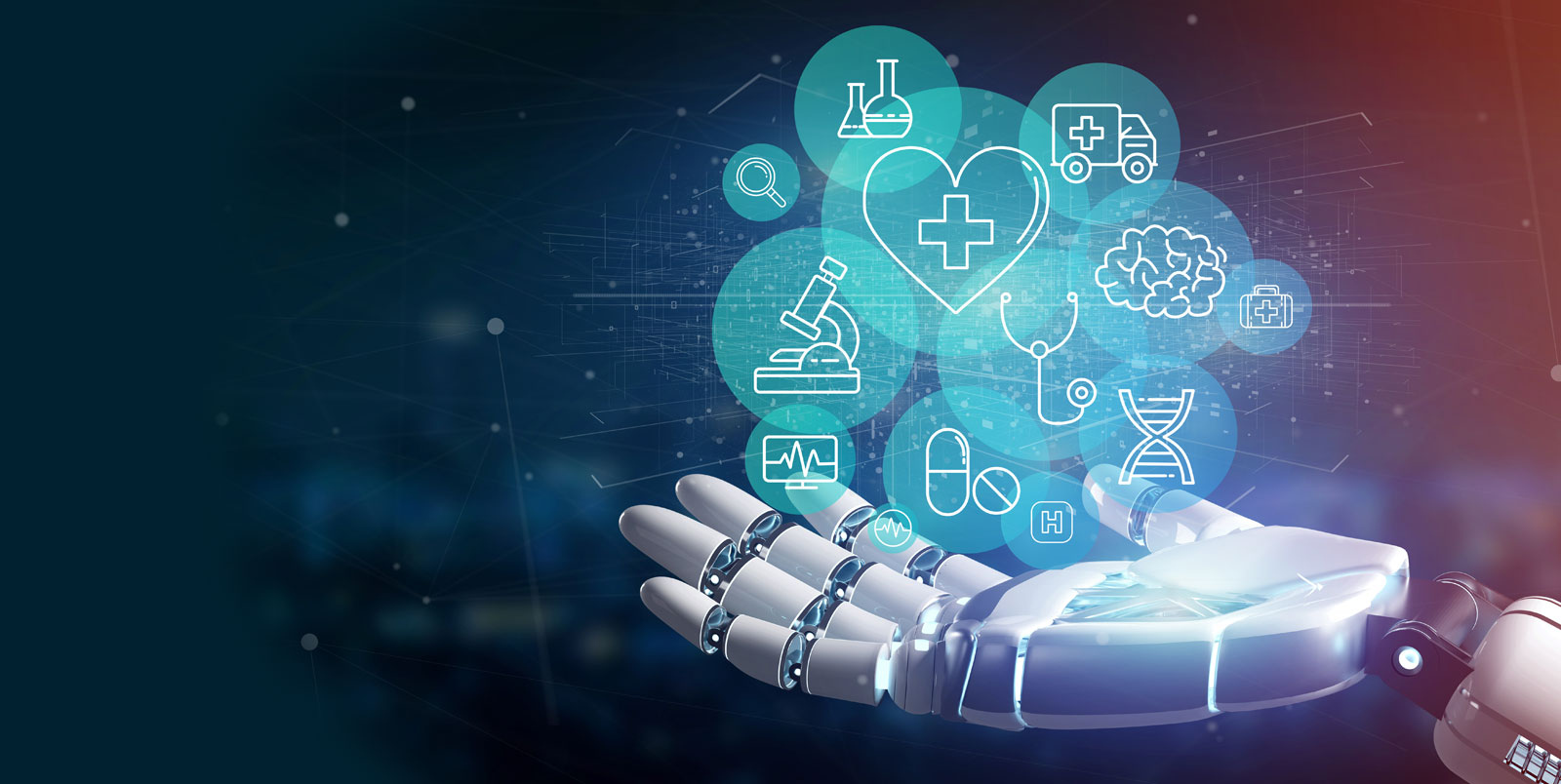Healthcare Management Software Development
- Introduction to Healthcare Software Development
- Key Components of Healthcare Management Software
- Custom Healthcare Software Development
- Ensuring Compliance and Security
- Choosing the Right Healthcare App Development Company?
- Partnership Beyond Development
- Best Healthcare Software on the Market
- Types of Healthcare Software
- Incorporating Healthcare Management Software Solutions
- Seamless Integration with Existing Systems
- Training and Support: The Human Aspect
- Healthcare Software Applications and Innovations
- Wearables and IoT: Extending the Reach of Healthcare Management
- Expanding Accessibility with Mobile Health Apps
- Telehealth: Breaking the Barriers of Distance
- The Future of Healthcare Software Development
- Embracing Cloud Computing in Healthcare
- Conclusion: Navigating Healthcare Management Software with BuzzyBrains
Introduction to Healthcare Software Development

The healthcare sector’s leap into the digital era has been nothing short of revolutionary. Healthtech development is at the forefront, transforming how providers and patients interact. This advanced healthcare software digitizes patient records and provides tools for diagnostic information, treatment planning, and managing operational tasks. This tech-driven approach aims to create a more cohesive, efficient, and accessible healthcare system. But beyond the basics, advanced healthcare software is about enhancing, customizing and optimizing the user experience for healthcare professionals and patients.
Key Components of Healthcare Management Software
When we talk about healthcare management software, we’re referring to a suite of applications that support the healthcare industry in various ways. A robust patient management system is a digital receptionist, tracking patient flow from check-in to discharge. Electronic Health Records (EHRs) are a digital version of a patient’s paper chart containing medical history, diagnoses, medications, treatment plans, and test results. Another essential component is billing and coding software, which simplifies the intricate process of healthcare billing and insurance claims, ensuring accuracy and efficiency in reimbursement procedures.
Custom Healthcare Software Development
The journey of custom healthcare software development is complex yet rewarding. It begins with a meticulous process of understanding the healthcare provider’s objectives, identifying the end user’s needs, and meticulously designing an agile and robust system. This bespoke approach ensures that the software aligns with the healthcare provider’s operational needs and enhances the care delivery experience. A custom solution means the software can grow and adapt with the practice, accommodating new treatments, evolving healthcare regulations, and emerging patient engagement models.
Ensuring Compliance and Security
One of the pivotal aspects of custom healthcare software development is adhering to stringent healthcare regulations. Security of patient data is paramount, and a reputable custom software development company in India or elsewhere should prioritize this in their development process. They need to ensure that the software is not just HIPAA compliant but also secure against cyber threats, which are increasingly becoming a concern in digital healthcare.
Choosing the Right Healthcare App Development Company?
The choice of a healthcare app development company can significantly influence the trajectory of a healthcare facility’s digital journey. A partner with a nuanced approach to development, an eye for innovation, and a commitment to quality can elevate the standard of care provided. The right company will take the time to understand the unique challenges healthcare providers face and tailor the software to meet those needs while maintaining a patient-first approach.
Partnership Beyond Development
The ideal healthcare app development company will offer more than just development services; it will become a strategic partner throughout the software lifecycle. This includes post-launch support, regular updates to keep up with changing technology and healthcare standards, and a responsive service team to handle any issues.
Best Healthcare Software on the Market
The best healthcare software catalyzes efficiency and is a beacon of reliability. It’s not just about having a sleek interface or a list of features; it’s about delivering a seamless experience that resonates with the users. The best software is intuitive, allowing healthcare professionals to focus more on patient care and less on navigating complex software systems.
Interoperability as a Benchmark for Excellence
Interoperability is a hallmark of the best healthcare software, allowing different systems and software to work together within the healthcare ecosystem. This connectivity ensures that patient data flows securely and efficiently between departments, specialists, and external providers, enabling comprehensive care.
Types of Healthcare Software
The types of healthcare software have expanded to include specialized solutions for every aspect of healthcare. Beyond the typical EHRs and practice management tools, there are now advanced analytics platforms that help in predictive modeling, patient engagement tools that facilitate better communication between patients and providers, and even logistics software that manages the supply chain of medical inventory.
Software Specialisation for Enhanced Care
Specialized software solutions, like those for mental health, oncology, or pediatrics, provide tools tailored to the unique requirements of each medical specialty. These types of healthcare software enhance the care process by providing features and functionalities specific to treating and managing different patient populations.
Incorporating Healthcare Management Software Solutions
Integrating healthcare management software solutions into a healthcare facility’s ecosystem is a strategic process that demands careful consideration. It’s about striking the right balance between technological advancement and user adaptability. Once a system is in place, it can significantly streamline operations, reduce errors, and free up staff to focus on patient care rather than administrative tasks. Key to this transition is the selection of software that is intuitive and requires minimal training, reducing the resistance that often accompanies the adoption of new technologies.
Seamless Integration with Existing Systems
A common hurdle in the adoption of new healthcare software is ensuring that it integrates smoothly with existing systems. Healthcare providers often use a range of software applications, and the new system must be able to communicate with these without hiccups. The best healthcare management software acts like a symphony conductor, bringing various components into harmony without missing a beat.
Training and Support: The Human Aspect
The success of new software implementation is largely dependent on the people using it. Comprehensive training programs are essential to empower staff to utilize new healthcare management software solutions effectively. This training should be accessible, engaging, and practical, ensuring that all users, regardless of their tech-savvy, can navigate the new system with confidence.
Healthcare Software Applications and Innovations
Innovation in healthcare software applications is not just about the introduction of new features; it’s about creating a transformative user experience that reshapes the healthcare landscape. These applications are becoming increasingly patient-centered, offering more than just administrative convenience. They engage patients in their health journey, fostering a collaborative environment where patients and providers work together towards better health outcomes.
Wearables and IoT: Extending the Reach of Healthcare Management
The integration of wearables and IoT devices with healthcare software applications is a burgeoning field. These devices collect a wealth of data that, when analyzed, can provide insights into a patient’s health and predict potential health events. This empowers patients with real-time health data and provides healthcare providers with additional monitoring capabilities.
Expanding Accessibility with Mobile Health Apps
Mobile health apps are revolutionizing patient engagement by providing tools that encourage active participation in health management. These apps, from appointment scheduling to medication reminders, are making healthcare more accessible than ever. They are an extension of healthcare management software, placing a miniaturized control panel into the hands of patients.
Telehealth: Breaking the Barriers of Distance
Telehealth has emerged as a beacon of innovation, especially significant during global health crises. It has shown that distance need not be a barrier to receiving quality care. Healthcare software development that focuses on telehealth is not just about video calls; it’s about creating a secure and effective environment for remote diagnosis, consultation, and treatment planning.
The Future of Healthcare Software Development
Peering into the future of healthcare software development, we see a landscape where technology and healthcare are inseparable. The key trends shaping this future include personalized healthcare plans generated by AI, wearable devices that provide real-time health monitoring, and smart systems that predict patient admissions and manage resources efficiently.
Artificial Intelligence and Predictive Healthcare
In healthcare, AI is moving towards predictive models where software can suggest potential diagnoses and preventive measures. This kind of foresight in healthcare management software could revolutionize patient outcomes by catching health issues before they become critical.
Big Data: The Keystone of Healthcare Efficiency
Big Data is another cornerstone of modern healthcare software development. With it, healthcare providers can uncover insights into population health trends, improve patient care, and optimize operational efficiency. Big Data analytics can also play a pivotal role in research, leading to treatments and drug development breakthroughs.
Embracing Cloud Computing in Healthcare
Cloud computing is set to play a significant role in the future of healthcare software development. The cloud provides a flexible, scalable platform for healthcare software, ensuring that providers have the resources they need to manage large volumes of data, deploy AI and analytics effectively, and adapt to the growing demands of telehealth services.
Conclusion: Navigating Healthcare Management Software with BuzzyBrains
In the search for excellence in digital healthcare, the right partnership is invaluable. Selecting a custom software development company in India is not just a decision; it’s a strategic alliance for future growth. BuzzyBrains stands out as a collaborator who is proficient in technology and deeply committed to the healthcare mission.
Their expertise in healthcare management software development ensures that the solutions provided are innovative compliant and designed with the end-user in mind. As healthcare continues to evolve, BuzzyBrains is adeptly positioned to help navigate these changes, providing software solutions that genuinely improve healthcare delivery and patient outcomes, propelling healthcare facilities toward a more efficient, patient-centric future.
